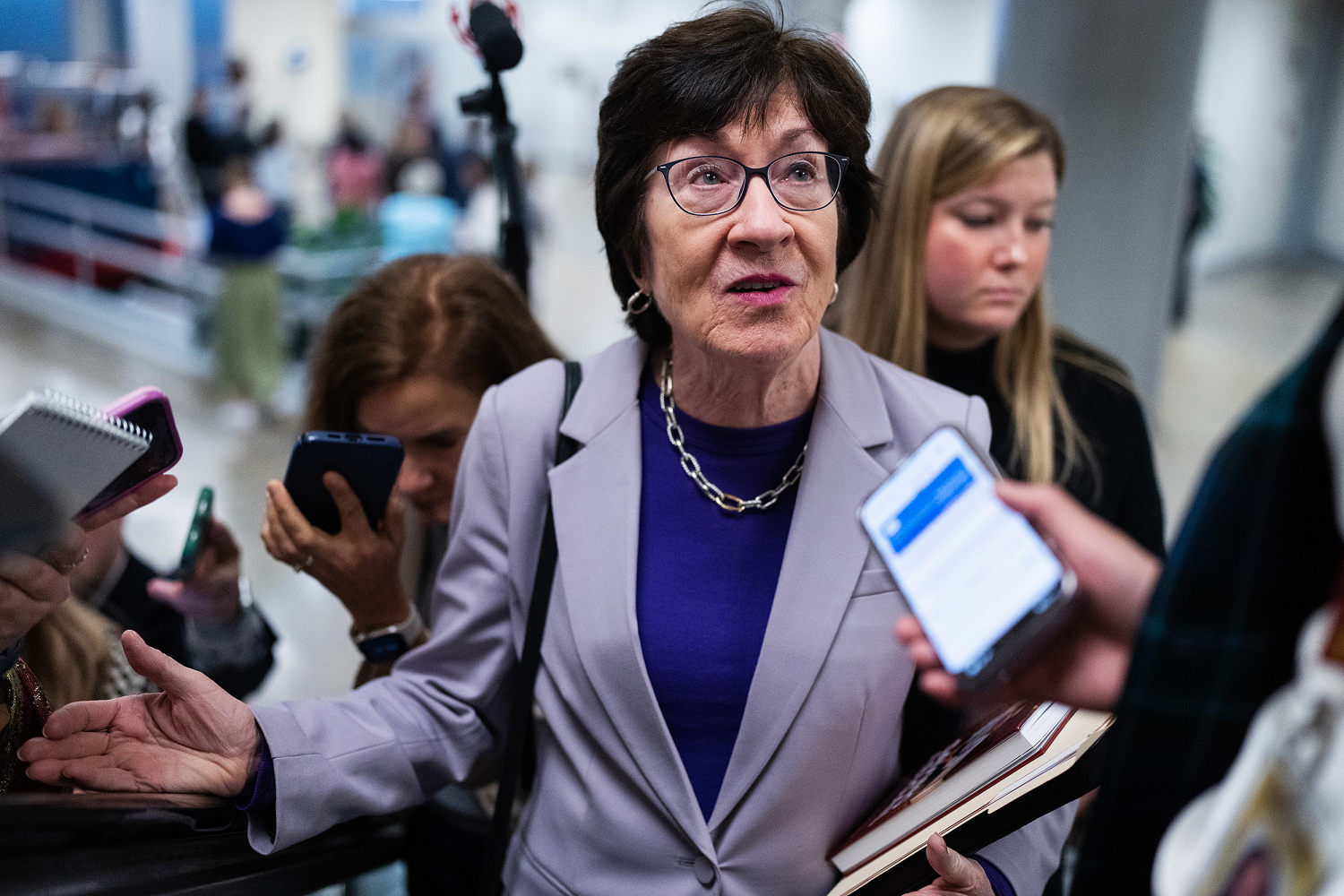
WASHINGTON — Emily Stenson’s life changed forever when she learned that her daughter, Charlie, then 3, had stage four germ cell cancer.
Charlie, now 5, is cancer-free. But the clinical trials sponsored by the National Institutes of Health that Stenson says saved her daughter’s life are at risk, with the Trump administration weighing whether to slash billions more in funding and fire hundreds of scientists from the agency in an effort to downsize the federal government.
“Her life was saved from research,” Stenson told NBC News in an interview. “The trials provided us with the drugs that were needed to save her life. Another trial provided us with an option to preserve her fertility if she wants to be a mom when she grows up.”
Sen. Susan Collins, R-Maine, who chairs the powerful Appropriations Committee tasked with managing the federal budget, slammed the administration Wednesday as she gaveled in an oversight hearing on the subject.
“These actions put our leadership in biomedical innovation at real risk and must be reversed,” Collins said.
Collins told NBC News in an interview before the hearing that the administration needs a “surgical approach, not a sledgehammer” when it comes to the NIH.
“I think it’s better that Congress make it really clear in our legislation, in our appropriations bills, that we want the funding to be there, that we don’t want arbitrary caps, and that we want to be more efficient. There may be some savings that make a great deal of sense, but we’ve got to be careful,” Collins said.
With Charlie in tow, Stenson flew across the country, from Washington state to the nation’s capital, to testify before the bipartisan panel of senators.
“I’m hoping to put a face to childhood cancer and to show that we’re real families, that it’s not just kids on commercials to pull at heartstrings. We’re real people, we are their constituents, and we rely on research. We cannot have them cutting things that are saving our kids’ lives,” Stenson said, tearing up as she watched Charlie color beside her.
Stenson began her remarks before the committee by saying: “I sit before you not only as a mother, but as a witness to what federally supported research can make possible and what it would mean to lose it.”
Earlier this year the Department of Government Efficiency, or DOGE, fired more than 1,000 researchers, scientists and workers at the NIH, and issued a mandate to cut more than $2 billion in contracts. A leaked draft restructuring plan at the Department of Health and Human Services, run by Secretary Robert F. Kennedy Jr., proposed a 44% cut to the overall NIH budget, according to the document obtained by NBC News.
Collins argued that Republicans, who are in full control of Washington, “have a great deal of ability” to push back on the administration’s policies. She has privately discussed the matter with Kennedy as well as others in the administration, but stressed the importance of holding public hearings, too. Collins suggested the administration has broken the law with some of its unilateral actions on funding at the NIH, including imposing a 15% cap on administrative and facility costs.
“I’m hoping that we can show what the impact is of arbitrarily reducing staff by thousands of people, by cutting grants all around the country and by causing clinical trials to be halted. When people realize, and when the administration more fully realizes that it acted too quickly, without looking at the devastating effects, I think we’ll see a reversal of many of these policies,” Collins said.
The White House did not immediately respond to a request for comment.
Appropriators in the Capitol anticipate an updated budget proposal for fiscal year 2026 as soon as Friday, according to three sources with knowledge of plans. It comes as a Washington Post/ABC News/Ipsos poll found that 77% of Americans are opposed to reducing federal funding for medical research.
Sen. Patty Murray, of Washington, the top Democrat on the Appropriations Committee, invited her constituent, Stenson — who also advocates for other families battling childhood cancer — to testify before the panel.
Asked if the administration understands the impacts these cuts could have, Murray said she believes “they sit in an office someplace and have no idea that there are Charlies and Emilys out there that are counting on them.”
Collins argued that “President Trump has always wanted the United States to be the world leader in everything,” but that the cuts could actually “cause the United States to be displaced by China or some other country.”
Murray agreed.
“How can you say to a little girl at Children’s Hospital in Seattle that ‘we’d love to help you, but we can’t, because China has the research and you don’t?’” Murray said. “We won’t own the research. We don’t have access to it unless China says that we have access to it.”
